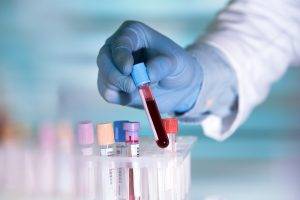Around 1 in 10 people in the world live with diabetes. Among them, 95% have type 2 diabetes, with 60% living in Asia.
Diabetes is a disease of inadequate control of blood glucose levels. It has many subclassifications, including type 1, type 2, Maturity-Onset Diabetes of the Young (MODY), gestational diabetes, neonatal diabetes, and steroid-induced diabetes.
Type 2 diabetes is late-onset diabetes with the average age of onset around 45 years. Though highly linked with certain genetic traits, lifestyle plays a major role in it as well. Many people only realise they have diabetes by the time their symptoms become severe and require immediate medical treatment. Pre-diabetes describes a condition in which blood glucose levels are higher than normal, although not high enough to be diagnosed with type 2 diabetes. This article will bring you 5 things you need to know about the period before diabetes – pre-diabetes.
Blood test tells all
Blood tests not only diagnose you with diabetes but also indicate your level of blood glucose control. One particular blood test, the glycated haemoglobin (A1C) test, measures the amount of blood glucose bound to haemoglobin – the oxygen carrier in our blood. The amount of sugar bound indicates your average blood glucose level in the past three months.
In general:
- Below 5.7% is normal
- Between 5.7% and 6.4% are diagnosed with prediabetes
- 6.5% or higher on two separate tests indicates diabetes
Certain medical conditions can make the A1C test inaccurate, such as pregnancy or known haemoglobin disorders.

It does not have clear symptoms
People with prediabetes usually do not have any symptoms or bodily discomfort at all. However, here are some of the common risk factors you should look out for:
- Being overweight – Body Mass Index (BMI) greater than 25. Use the calculator here
- Sedentary lifestyle
- Diet: high in fat and sugar content
- Poorly controlled blood cholesterol and triglyceride
- High blood pressure
- Family history of type 2 diabetes
- Smoking
If you have one or more of the above risk factors, consult your local doctors for regular blood tests to monitor blood sugar levels.
It is reversible
Prediabetes is not a disease and is completely reversible even without pharmaceutical medications. Lifestyle modification is key:
- Balanced diet: a diet low in carbohydrates but rich in fibre such as whole grains, vegetables and nuts. Do not drink sugary beverages like Coke, Fanta etc. Consult a dietician for details.
- Weight loss if you are overweight
- Exercise: aim for at least 30 minutes of daily exercise
- Quit smoking if you do
A study called the Diabetes Prevention Program showed a reduction of approximately 58 % reduction in diabetes occurs in people who kept up with these changes in the long term.

Diabetes is harder to live with than prediabetes
If you are diagnosed with prediabetes and think it is no big deal because your life goes on, as usual, think again! Yes, prediabetes does not give you major symptoms and everything seems fine at that stage. If you do not change your lifestyle, however, diabetes will soon come. Think about all the troubles diabetes can give you:
- Excessive thirst and urination
- Vision loss
- Suppressed immunity: frequent infections
- Cardiovascular disease: diabetes is a major risk factor for heart attack and stroke
- Peripheral neuropathy: nerve damage on your foot and leg can cause ulcers and eventually lead to amputation
- Kidney damage: once your kidney vessels become clogged and damaged, your kidney will experience irreversible damage. In end-stage kidney failure, you will require dialysis.
If you just learned you had prediabetes, take it as good news
Knowing your health is always better than not knowing. Knowing you have prediabetes is great news because you can now act to prevent the onset of diabetes and avoid all the disastrous complications. Even a modest change in lifestyle could lead to a significant risk reduction of having diabetes. Start now by planning your meals, setting out time for exercise and living a healthy life!












